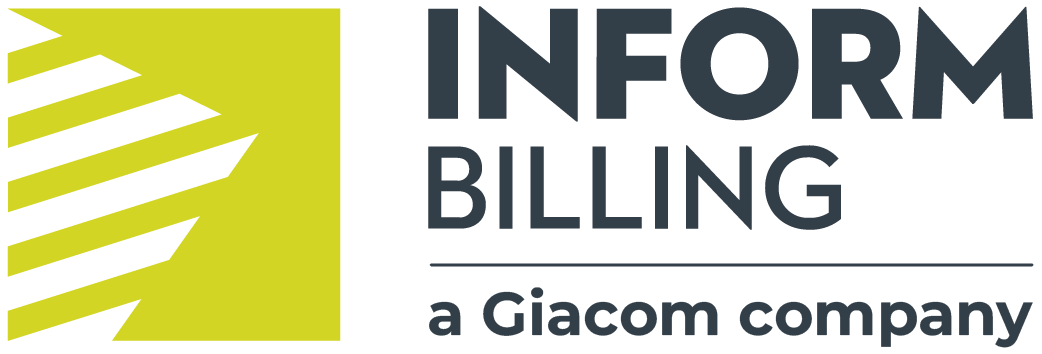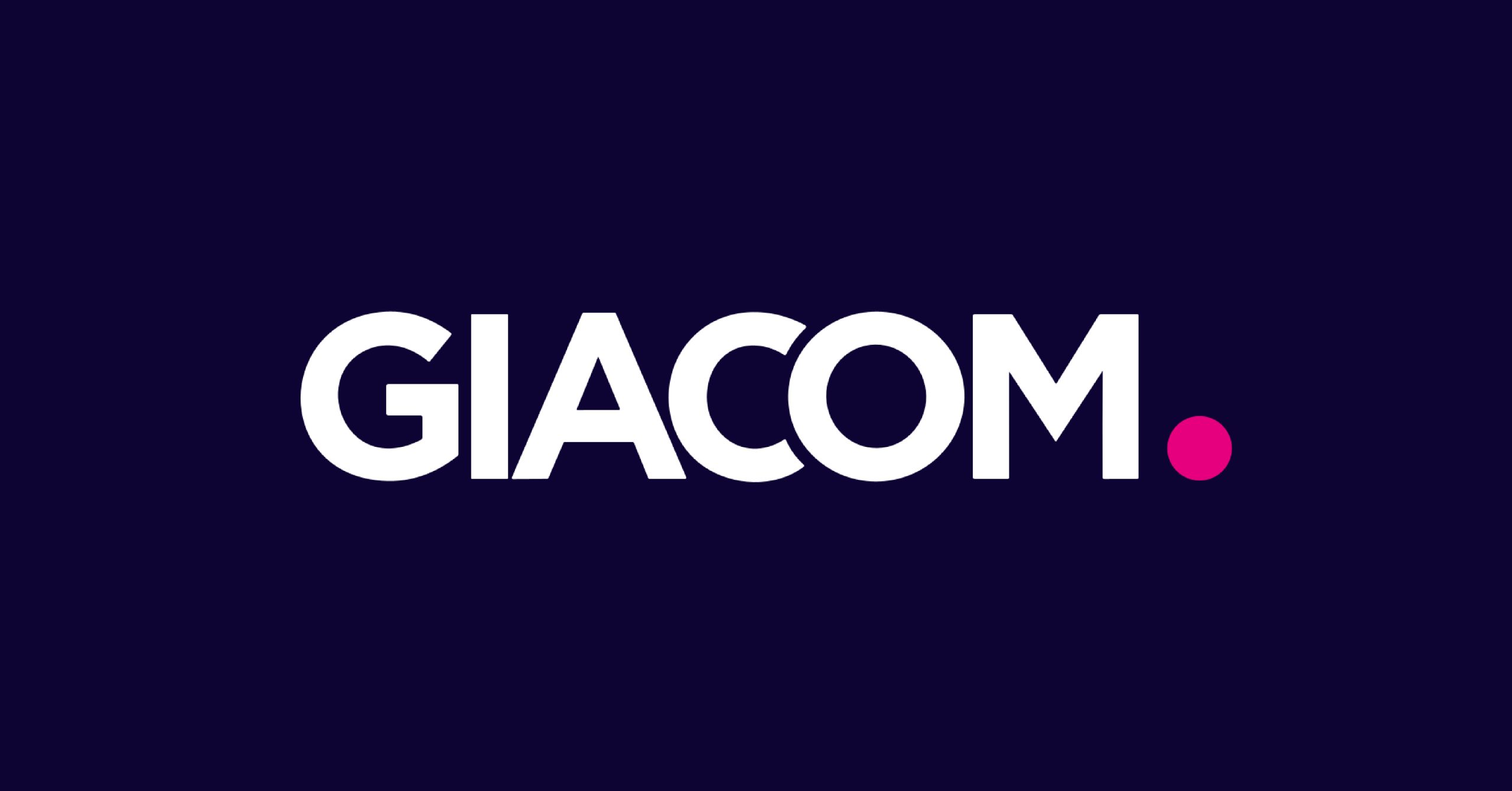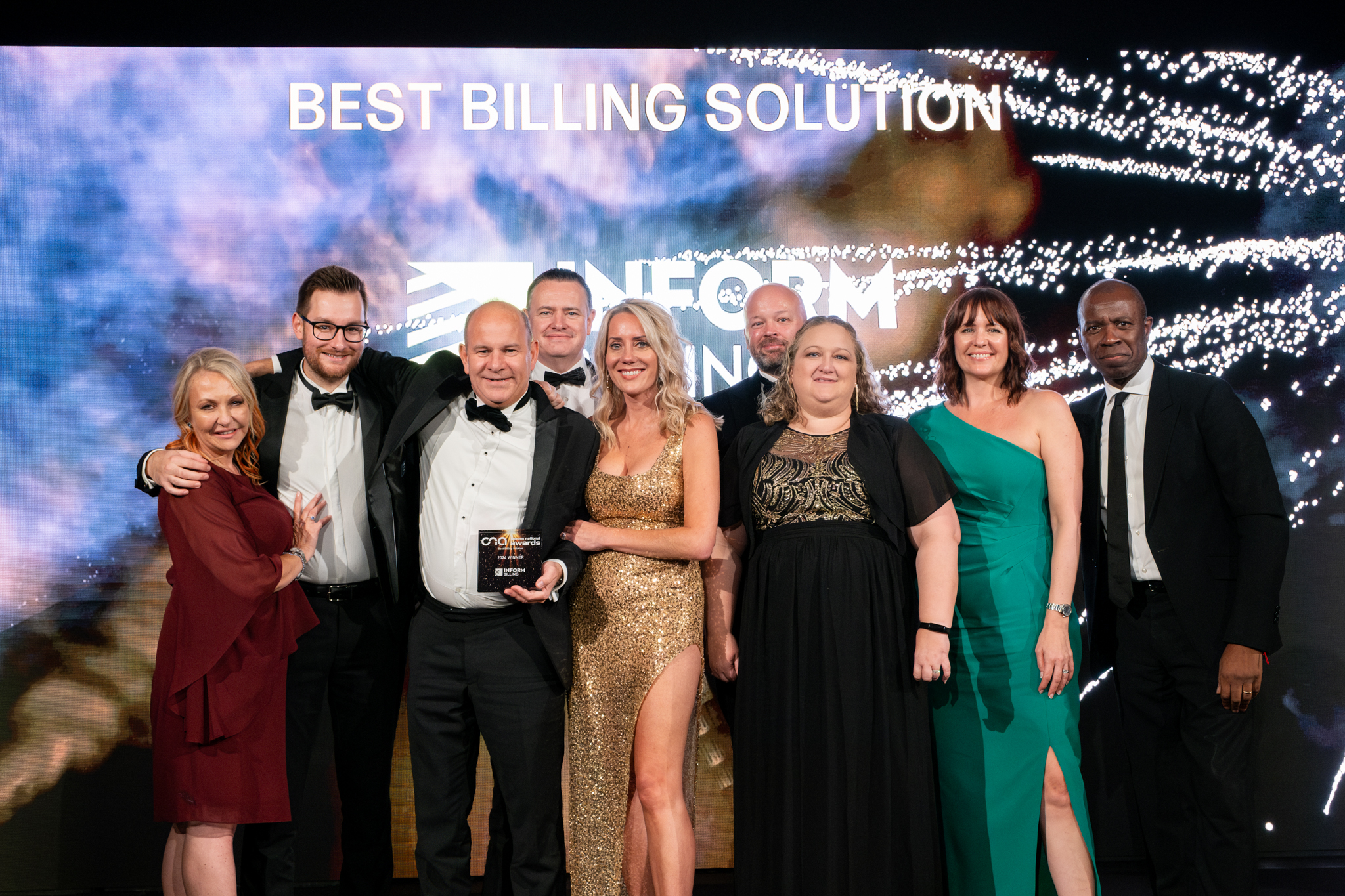A year on from celebrating 10 years in business just as the pandemic hit, we caught up with Shaun Bodsworth Co-Founder and Managing Director of Inform Billing, to learn more about his views on the billing sector and what lies ahead for the industry:
Q. What were the events leading up to you founding the company?
A. I’d started in telecoms with Motorola Telco in 1998. Subsequently I joined a reseller and by 2005 I had moved into telecoms consultancy, focussing on billing, analysis and procurement. It was in 2009 that I recognised an opportunity to acquire the intellectual rights for the Eclipse billing software, which my business partner had originally developed. I could see a wider commercial application having seen its potential previously as a customer.
Q. How do you see Inform Billing, at present and going forward?
A. The business started with a great product which has enabled us to continue our ambitious growth trajectory to achieve the almost 300 customers we currently have on the platform.
The core has always been focussed on traditional telecoms and IT reseller customers, but now we are helping resellers diversify and developing the product to solve billing issues across other industries. With the advent of the ‘subscription economy’ there is a key opportunity to extend our reach to include billing for hospitality, waste and print management. We have a great team at Inform and the product roadmap is one of ambition and growth.
Q. How sticky are your customers?
A. A very high percentage of our customers have been with us for the long-term. We recognise that switching provider isn’t always an easy task and there has to be real value to be gained, but with our experience and processes we have made it as painless as possible to move to us. There are always going to be clients who insist on shopping around, to get the cheapest deals, but we’re not in that market. Our mantra is to focus on adding value and working in partnership which has led to very low customer attrition.
Our view is that billing is not a commodity and the relationship only works if there’s great communication between us and the customer. We’re not just providing software, we are providing a service, in terms of training, support and expertise, as well as fulfilling legislative requirements. Our customers look to us to supply the knowledge that they may not have within their business. It’s important to get the billing right, otherwise it can lead to invoice queries, payment delays and ultimately impact on cash flow which impedes their own progress as a business.
Q. How has digital transformation helped you to stay ahead of the game?
A. We launched our cloud-based application in 2017. Many competitors had talked about it – but no-one had truly delivered. We have watched others try to follow suit, but we have 4 years’ experience under our belts and have dealt with all the pitfalls. As the pandemic hit there was a scramble by many businesses to adapt. I’m not saying that we had a crystal ball, but our forward thinking has certainly meant that we have been better placed to support our customers, with much greater ease than some.
Q. With a ‘hybrid model’ of working from home and the office being predicted for the year ahead, what opportunity does that provide?
A. We know that some of our competitors offer their solution via a hosted desktop application, which isn’t a true web-based service. Only with a truly web-based platform, provided through a web browser such as ours, can the billing software be accessed wherever and whenever the customer wants. That could be in the office, at home, in a hotel room, or on a train, it provides portable access, which makes it significantly easier for a hybrid model of working.
Having no infrastructure to worry about ensures our customers can manage their business much more efficiently, whilst we look after the security, backups and datacentres. So, the fact that their billing system is web-based doesn’t directly affect their revenue opportunities, but it does make their cost-base cheaper.
Q. Where do you see the biggest pitfalls for resellers and how can you support them?
A. As far as the post-Covid situation is concerned, the challenge for most resellers will be to successfully manage their people. Employees have become accustomed to working remotely and enticing them back into the office will require some thought. There will be some who wish to remain working from home, taking account factors such as: reduced commute costs; better work/life balance; and more time with family but others will be keen to resume face-to-face meetings and meet with the wider channel.
Beyond the staffing issue, another area will be managing debt and cashflow. There are signs that the UK could buck the trend and recover quickly, but we still don’t know what’s going to happen in terms of the economic impact. A lot of debt and cashflow management is about billing. The number one rule is to always get invoices out on time, accurately and at regular intervals. Using an automated platform achieves this far more effectively than manual or out-dated systems.
Q. With challenges come opportunities, so where do you see these?
A. The opportunity for us will be opening up new areas within the subscription economy, as I mentioned earlier. There are many new services available on subscription with events that trigger billing complexities, which is where we come into our own. A great example would be a gym – you can take the whole event-driven idea a stage further, because it may not be “how many times have you visited the gym” but it could be “which equipment was used and for how long” it could go to that level of granularity, where you are charged for usage rather than the visit.
Another area we are now involved in is waste management. Companies can be charged by what the waste contains and how much it weighs. And that will inevitably lead to the domestic front, where every bin will have a chip, which is connected to a network and when it’s collected it will calculate how much the owner should be charged.
In addition to the above, another key opportunity is the coming of 5G and the greater scope of connectivity. The whole concept of ‘The Internet of Things’ becomes a real proposition and the boundaries for that are only really restricted by the imagination.
When we’ve got 5G combined with fibre-to-the-premises and an event-driven subscription economy, the possibilities really will be mind-boggling.
Q. Where do you see the role of the billing provider in terms of fraud and security?
A. In terms of telecoms, the best place to manage fraud is on the network, because that is the only place that is instantaneous and can be programmed to make a decision, and ultimately to take corrective action. Whether that’s blocking the SIP-trunk, the line, the mobile or whatever the device may be.
There is a substantial amount of fraud that gets confused with ‘over-usage’, but where we can help is by providing detailed real-time usage data, which is, itself, driven by the availability of that data from the network or the carrier. We have customers in the mobile arena for instance, where we have access to CDR data on an hourly basis, which we are able to update, rate and provide a report to the end customer of the reseller, on a white-labelled online portal. This allows the reseller, and the end user, to benefit from real-time insight on their usage and to comply with legislation such as bill-capping at all times of the month.
This also helps with identifying fraud. Automatically triggered alerts will create notifications if certain criteria are breached. This level of reporting can only be achieved through a platform such as ours which allows remedial action to be taken swiftly.
Q. How does Inform Billing stand out in a crowded marketplace?
A. For me it’s about service, rather than price. It’s about enablement and technology. We have built the business on a partnership basis with our customers. We solve many problems and help ease that ‘pain in the backside’ process that no-one likes to deal with, but which is a critical part of running a business.
We are especially good at solving problems; some of that is in the code that we write, which produces the software that people use, whilst some of it is letting customers know how to use that software. On a daily basis we are helping people solve their billing challenges, some of which are quite simple, whilst some are ridiculously complex, so much so that you couldn’t explain it in 10 minutes. So, for us it’s about being the experts in what we do. Between myself and my co director Darren we have over 50 years’ experience in the industry; we’ve both been billing managers; and have both run reseller businesses, which means we understand the pain points.
Another one of our key strengths is our independence. We are privately owned, and are independent from a carrier, aggregator and network perspective, so are completely focussed on billing and perfectly placed to provide the high levels of customer service and support which are so important.
Q. So last question: are your views on the importance of independent providers seen as being controversial?
A. I don’t think my views around the benefits of being an independent billing provider are controversial, others may disagree though! The UK was a thriving market with numerous independent suppliers competing in a healthy environment, but now some of our largest competitors are rolled up into large groups, or have been taken over, with a whole raft of mergers and acquisitions having taken place recently.
Somewhere around 6-10 billing companies have been taken out of the independent channel which isn’t healthy in my view. We have 2-3,000 resellers in the UK and if the market was left to just the big 5 or 6, it would be a pretty sad industry. Mergers and acquisitions have their place and can be a good thing, but from a billing perspective I think the availability of an independent billing provider is important – if I were a reseller, I would certainly want my billing independent from where I buy my services. If that’s controversial, then so be it!





